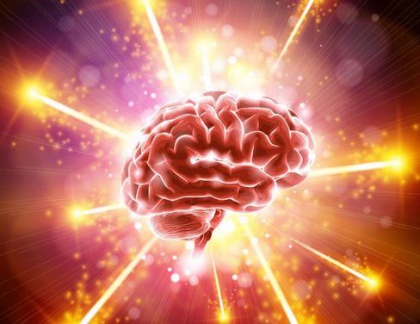Inflammation and Depression

According to a new study conducted by Canadian researchers, major depression is linked to brain inflammation. The study has been published in the magazine Archives of General Psychiatry. These findings have important implications in the development of new treatments for depression.
What is inflammation?
Inflammation is the immune system’s natural response to an infection or illness. The body often uses inflammation to protect itself. For example, when we sprain a muscle or fracture a bone, that area becomes inflamed. The same principle also applies to the brain.
However, excess inflammation can be harmful. Evidence increasingly suggests that inflammation causes some of the symptoms of depression such as low spirits, loss of appetite and trouble falling asleep.
The study
The new study aimed to investigate whether inflammation is a controlling factor for depression, independently from other physical ailments.

To investigate, the researchers used Positron Emission Tomography (PET) to scan the brains of 20 patients with depression and another 20 healthy patients. The healthy patients formed the control group.
Particularly, the team closely measured the activation of microglia, which are cells in the immune system that play a key role in the brain’s inflammatory response.
The PET scans showed significant inflammation in the brains of the people with depression. The inflammation turned out to be even more severe in the participants who suffered from more severe depression. The brains of the people that were experimenting clinical depression showed an increase in inflammation of 30%.
Previous studies
Previous studies had analyzed inflammation markers in the blood of people with depression in an attempt to see if inflammation was a consequence of the depression or if it was a factor that made depression worse.
A study, conducted in 2012 by the researchers in Duke University Medical Center in California, found a link between the number of depressive episodes experienced by the participants within the study and an increase in the levels of an inflammation marker called C-reactive protein (CRP).
The importance of inflammation in the treatment of depression
Experts affirm that this discovery provides the most convincing evidence to date of the brain inflammation suffered during a severe depressive episode.
According to the researchers, this discovery has important implications for the development of new treatments for people suffering from depression. It provides a new potential objective to revert brain inflammation or for it to play a more positive role in its recovery in order to alleviate symptoms.

Severe depression affects 4% of the general population. However, more than half of the people with severe depression don’t respond to antidepressants. Professionals in this field suggest that future studies should investigate the possible impact of anti-inflammatory medication on the symptoms of depression.
Current treatments aren’t targeted towards reducing inflammation. Therefore, treating depression with anti-inflammatory medication is a future investigation route.
Depression is a complex illness which develops as a result of many factors. Now, and thanks to this type of study, we can add one more piece to the puzzle that is this disease.
According to a new study conducted by Canadian researchers, major depression is linked to brain inflammation. The study has been published in the magazine Archives of General Psychiatry. These findings have important implications in the development of new treatments for depression.
What is inflammation?
Inflammation is the immune system’s natural response to an infection or illness. The body often uses inflammation to protect itself. For example, when we sprain a muscle or fracture a bone, that area becomes inflamed. The same principle also applies to the brain.
However, excess inflammation can be harmful. Evidence increasingly suggests that inflammation causes some of the symptoms of depression such as low spirits, loss of appetite and trouble falling asleep.
The study
The new study aimed to investigate whether inflammation is a controlling factor for depression, independently from other physical ailments.

To investigate, the researchers used Positron Emission Tomography (PET) to scan the brains of 20 patients with depression and another 20 healthy patients. The healthy patients formed the control group.
Particularly, the team closely measured the activation of microglia, which are cells in the immune system that play a key role in the brain’s inflammatory response.
The PET scans showed significant inflammation in the brains of the people with depression. The inflammation turned out to be even more severe in the participants who suffered from more severe depression. The brains of the people that were experimenting clinical depression showed an increase in inflammation of 30%.
Previous studies
Previous studies had analyzed inflammation markers in the blood of people with depression in an attempt to see if inflammation was a consequence of the depression or if it was a factor that made depression worse.
A study, conducted in 2012 by the researchers in Duke University Medical Center in California, found a link between the number of depressive episodes experienced by the participants within the study and an increase in the levels of an inflammation marker called C-reactive protein (CRP).
The importance of inflammation in the treatment of depression
Experts affirm that this discovery provides the most convincing evidence to date of the brain inflammation suffered during a severe depressive episode.
According to the researchers, this discovery has important implications for the development of new treatments for people suffering from depression. It provides a new potential objective to revert brain inflammation or for it to play a more positive role in its recovery in order to alleviate symptoms.

Severe depression affects 4% of the general population. However, more than half of the people with severe depression don’t respond to antidepressants. Professionals in this field suggest that future studies should investigate the possible impact of anti-inflammatory medication on the symptoms of depression.
Current treatments aren’t targeted towards reducing inflammation. Therefore, treating depression with anti-inflammatory medication is a future investigation route.
Depression is a complex illness which develops as a result of many factors. Now, and thanks to this type of study, we can add one more piece to the puzzle that is this disease.
This text is provided for informational purposes only and does not replace consultation with a professional. If in doubt, consult your specialist.








